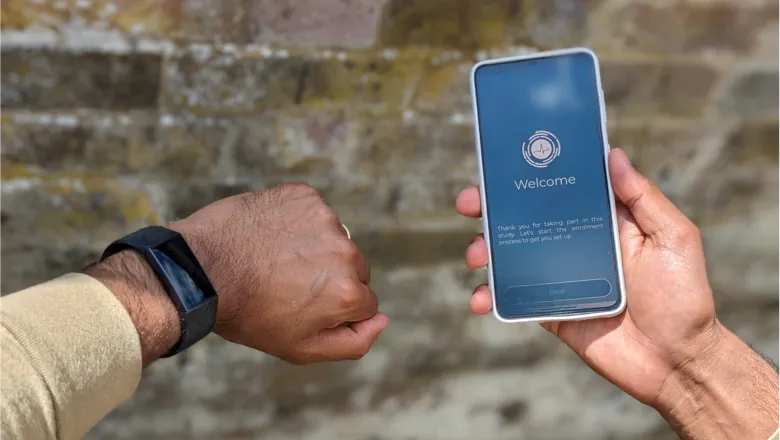We are delighted to receive this new funding that allows us to focus on the changes, challenges and needs that young people with ADHD experience during the transition to adulthood and adult mental health services. Using our ADHD remote technology (ART) system, we can remotely and continuously collect detailed real-world data and identify real-world targets for intervention. The development of a prototype for a clinical ADHD transition app will be a collaborative effort: our IoPPN team looks forward to working closely together with young people with ADHD, Andrea Bilbow from the ADHD support organisation ADDISS, Dr Maddie Groom and MindTech colleagues from Nottingham, and software engineers from the Hyve.
Professor Jonna Kuntsi, Professor of Developmental Disorders and Neuropsychiatry, Social, Genetic and Developmental Psychiatry (SGDP) Centre, King’s IoPPN
30 November 2023
£2.5m funding to study transition to adulthood for individuals with ADHD
The Medical Research Council (MRC) has awarded £2.5 million funding to principal investigator, Professor Jonna Kuntsi, and team to use remote technology to study the transition from adolescence to adulthood for people with ADHD.

Late adolescence and the transition to adulthood is a highly challenging and potentially critical period for young people with attention deficit hyperactivity disorder (ADHD) that can lay the foundations for diverging adulthood trajectories. This vulnerable phase coincides with the transition from child and adolescent mental health care to adult ADHD services, which is a focus of major current clinical concern. Therefore, many young people with ADHD do not receive appropriate interventions at a time when they may need them most.
The project, ‘ADHD Remote Technology and ADHD transition: predicting and preventing negative outcomes (ART-transition)’, will use ADHD Remote Technology (ART) to study the transition from adolescence to adulthood for people with ADHD, and will involve the development of a prototype for a new ADHD-transition smartphone app.
Over the next five years, Professor Kuntsi will work with co-investigators Professor Richard Dobson, Dr Ewan Carr, Dr Amos Folarin and Dr Johnny Downs at the Institute of Psychiatry, Psychology & Neuroscience (IoPPN) at King’s College London with external collaborators from the University of Nottingham, software company The Hyve and patient support organisation ADDISS.
The research programme will address three core questions on the transition to adulthood for individuals with ADHD:
- What changes take place?
- What predicts these changes?
- How can we prevent negative outcomes and support healthy lifestyles?
The approach focuses on giving young people greater autonomy in how they manage their ADHD, in collaboration with their clinician, and places the emphasis on modifiable environmental factors and the prevention of negative outcomes.
The study will remotely monitor 250 young people with ADHD over a two-year continuous assessment period, using both active and passive monitoring. The active monitoring involves the participant completing questionnaires and a speech task on a purpose-built smartphone Active App and completing cognitive tasks on a home computer. The passive monitoring involves data collection using a wearable device and a purpose-built smartphone Passive App (for example, data on physical activity, sleep, social interaction, relative location and digital usage).
The team will then work with young people with ADHD to co-design a prototype for a new ADHD-transition smartphone app. It aims to prevent negative outcomes and support healthy lifestyles by facilitating self-management, personalisation of treatment and engagement with adult services. App components may include personalised feedback, personalised educational components, prompts, alerts and data sharing with clinicians.
I'm delighted that we're able to use the RADAR-base mobile health platform to advance the boundaries of ADHD research. Through the collection and analysis of data from mobile devies such as smartphones and wearables we're aiming to not just understand, but to empower and uplift the ADHD community as they navigate the crucial transition into adulthood.
Professor Richard Dobson, Professor of Medical Bioinformatics at King's IoPPN
A total of £4 million funding has now been received by the IoPPN for ADHD Remote Technology (ART) research. Projects include EU- funded project 'ART-CARMA', King's Together-funded ART pilot study, MRC-funded study on women with ADHD led by Jessica Agnew-Blais at Queen Mary University London, in addition to the ART-transition MRC programme grant.
In this story
Related departments
- School of Mental Health & Psychological Sciences
- Institute of Psychiatry, Psychology & Neuroscience
- Social, Genetic & Developmental Psychiatry Centre
- Department of Biostatistics & Health Informatics
- ADHD Remote Technology (ART)
- ART-transition - ADHD Remote Technology and ADHD transition: predicting and preventing negative outcomes
- ART-pilot
- MAAM – Measuring Adult ADHD and Menstruation Study
- ART-CARMA – The ADHD Remote Technology study of cardiometabolic risk factors and medication adherence
- Mental Health & Neuroscience Clinical Trial Statistics Group





